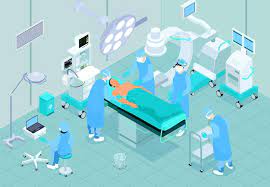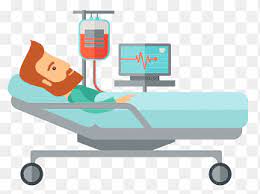

Fortis Hospital, Vasant Kunj has a dedicated Department of Oncology committed to providing high-quality care for cancer patients. A multidisciplinary approach to cancer treatment is indeed crucial for ensuring that patients receive the best possible care.
A multidisciplinary approach typically involves a team of healthcare professionals from various specialties, including medical oncologists, surgical oncologists, radiation oncologists, radiologists, pathologists, nurses, and other support staff. This team collaborates to develop a personalized treatment plan for each patient based on the type and stage of cancer, as well as the patient's overall health and preferences.
Diagnosis and Staging: Accurate diagnosis and staging of cancer are essential to determine the extent of the disease and the most appropriate treatment options.
Treatment Planning: The team works together to develop a tailored treatment plan, which may include surgery, chemotherapy, radiation therapy, immunotherapy, targeted therapy, or a combination of these approaches.
Supportive Care: Cancer treatment can have significant physical and emotional effects on patients. Supportive care services such as pain management, nutrition counseling, and psychological support are often integrated into the treatment plan.
Follow-Up and Survivorship Care: After the active treatment phase, the team continues to monitor the patient's progress, provide follow-up care, and address any potential long-term effects of cancer treatment.
Research and Clinical Trials: Participation in clinical trials may be offered to eligible patients, providing access to cutting-edge treatments and contributing to the advancement of cancer care.
The goal of this multidisciplinary approach is to optimize treatment outcomes, minimize side effects, and improve the overall quality of life for cancer patients. It's important for patients and their families to actively participate in discussions about their treatment plan and to ask questions to ensure they have a clear understanding of their options and what to expect throughout their cancer journey.
Fortis Cancer Institute is dedicated to providing top-notch care for cancer patients. A multidisciplinary approach to cancer treatment is essential, as it ensures that patients receive comprehensive and personalized care tailored to their specific needs.
The use of advanced technologies and techniques is also crucial in the field of oncology, as it can lead to more effective and less invasive treatment options. It's great to hear that your team is committed to staying up-to-date with the latest advancements in cancer care.
Cancer is a challenging journey for patients and their families, and having a compassionate and experienced team to support them can make a significant difference. I'm sure your patients appreciate the dedication and expertise of your oncologists, surgeons, and nurses in their fight against cancer. Keep up the excellent work in providing the best care possible for those in need.
Why Choose Us
-
✅ Highly experienced specialists team members
-
✅ 30+ Years of experience expert
-
✅ 24/7 Hours Services
-
✅ NABL Accredited LAB
-
✅ NABH Certified Nursing Excellence
-
✅ Ambulatory service for emergencies
-
✅ Ranked No. 7 in Delhi’s Best Private Hospital by The Week Magazine Survey, 2019
-
✅ Fortis Hospital Vasant Kunj has been ranked 15th in India list of World Best Hospital by Newsweek
Treatment Procedures
- Treatment
-

Chemotherapy is a cancer treatment that uses drugs to kill cancer cells, stop them from dividing, or slow their growth
Our Team of Experts
Aruna Asaf Ali Marg, Pocket 1, Sector B, Vasant Kunj, New Delhi, Delhi 110070
FAQs
-
Is oncologists or Cancer Doctors are Same ?Yes, Oncologists or Cancer Doctors are Same ! There are three main types of oncologists: Medical Oncologist: Treats cancer with medication, including chemotherapy, hormone therapy, and immunotherapy. Radiation Oncologist: Uses radiation therapy to treat cancer. Surgical Oncologist: Performs surgery to remove tumors and surrounding tissue.
-
What are the common signs and symptoms of cancer?Common signs and symptoms can include: Unexplained weight loss Fatigue Persistent pain Changes in skin Unusual bleeding Persistent cough or hoarseness Changes in bowel or bladder habits Lumps or swelling in the body
-
Is there a Cure for Oncology?Whether a person's cancer can be cured depends on the type and stage of the cancer, the type of treatment they receive, and other factors. Some cancers are more likely to be cured than others. But each cancer must be treated differently. There is no single cure for cancer.
-
How is cancer diagnosed?Cancer diagnosis typically involves: Medical History & Physical Examination: Assessing symptoms and risk factors. Imaging Tests: X-rays, CT scans, MRIs, and PET scans to visualize tumors. Biopsy: Taking a sample of tissue for laboratory analysis. Blood Tests: Evaluating tumor markers and general health.
-
How can I find the right oncologist or cancer center?To find the right oncologist or cancer center, consider: Referrals from your primary care physician or healthcare provider. Researching cancer centers accredited by organizations like the American College of Surgeons or NCI-designated Comprehensive Cancer Centers. Looking for specialists with experience in your specific type of cancer.
-
What can I expect during chemotherapy?Chemotherapy can cause side effects such as nausea, fatigue, hair loss, and increased risk of infection. The specific side effects depend on the drugs used and individual response. Your healthcare team will provide guidance on managing these side effects.






